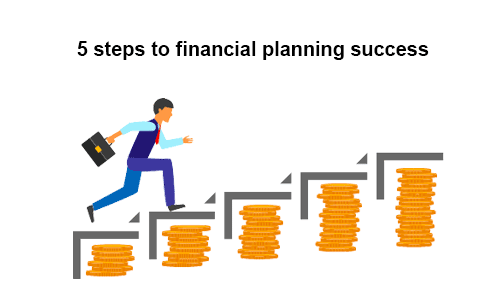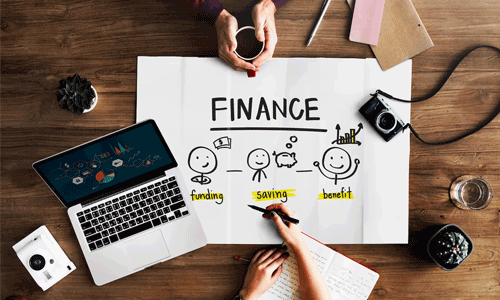To Invest or Insure? The Greatest Financial Planning Dilemma for Millennials
Ever since the beginning of their financial journeys with the start of their earnings, young earners automatically enter the personal finance ecosystem. To ensure their financial well-being in the run, they are required to take various decisions, exercise financial discipline, and set goals for their future self.
Amidst all this, a considerable dilemma faced by young adults is to choose between investing and buying insurance, whether health or life. This choice is further affected by factors like the old age of the parents of the policyholder, their family, and other such factors.
If one considers investing the fuelling of a vehicle, insurance can be thought of as carrying a repair or first aid kit before embarking on the journey. And while investing and insurance are vital aspects of personal finance, what you should prioritise as per your profile and economic conditions is discussed in the article below.
Investment
UAE nationals and residents have an array of investment options in UAE as well as the security of investment, given the laws regarding finance implemented in the country. You can invest in stock exchange trading, private pension schemes, real estate purchases, deposit accounts, and several other investment tools as per your risk profile and grow your wealth.
Here are some of the options that you can explore based on your risk appetite:
1. Mutual Funds
Mutual funds are among the renowned investment instruments. Here, a company collects funds from investors and invests them in bonds, stocks, and other investment options to form a portfolio. With mutual funds, the investor earns profits as the value of the overall portfolio goes up.
There are two ways through which you can buy mutual funds:
- Lump sum Payments
- Monthly SIPs
A Systematic investment plan (SIP) is an excellent way to manage and grow money in the market over a long period. It allows investors to invest small amounts periodically instead of going with a lump sum amount in one go. Under an SIP, users invest a specified amount at pre-specified intervals. Generally, the longer the investing period, the higher the returns with mutual funds due to the compounding effect.
Various leading financial institutions in the UAE deal with mutual funds of which you can check out the plans and select the one that aligns with your requirements.
Some of the popular banks offering mutual funds at reasonable rates are –
- Abu Dhabi Commercial Bank – Systematic Investment Plan
- Mashreq Bank – Systematic Investment Plan
- Commercial Bank of Dubai – International Investment Plan
- Citibank – Systematic Investment Plan
- HSBC Bank
- Emirates NBD – Monthly Investment Plan
- Standard Chartered Bank – Smart Savings Plan
Benefits of Mutual Funds
The following are some of the primary benefits of investing through sip investment plans:
- SIPs are affordable as you can invest small amounts each month
- Ease of access as you can apply for SIPs through online or offline mode
- Helps in building financial discipline by investing each month over a long time
- Significant growth if the investment is kept for a long
- Generally lesser effect of market volatility due to prolonged investment
2. National Bonds
National bonds are one of the safest investment instruments, where you can start investments at as low as AED 100. Apart from post offices in the UAE, you can purchase national bonds from any of the National Bonds Corporation outlets as well. One can also buy these bonds online, with the UAE Government allowing the online purchase of bonds via the official National Bonds website.
Both UAE residents as well as non-residents can buy national bonds and invest their money.
The bond offerings are divided into four categories:
- Personal Products
- Personal Services
- Prestige Programs
- Business Programs
Some of the best finance products of nationals bonds for millennials are discussed below:
- Savings Bonds: It is a regular savings scheme where one can start with an investment as low as AED 100
- Global Savings Club: In this plan, operated in partnership with the Dubai Quality Group, companies can register their employees with savings accounts
- Payout: A two-year investment plan
- Tejouri: Flexible savings account
- 2-year Booster: Programme for savings for two years and offers a return of up to 6%
- MyPlan: A simple savings plan that can be started with a monthly AED 100 investment
- Advance Booster 12%: With an initial investment of AED 10,000, one can earn returns up to 12% with this plan
- USD Certificates: Option to invest your money in US Dollars
Here are the primary benefits of National Bonds –
- Fixed returns on investment
- Safe investment tool – low or minimal risk
- Several options available in the UAE to choose from
3. Real Estate
With the UAE being a rapidly growing economy, the value of properties is expected to be on the rise for some time. Investing in real estate has numerous benefits associated like excellent returns, tax benefits, and more.
Discussed below are the top benefits that make real estate investment a stand-out option –
- The value of real estate goes up with time, especially in economies growing fast like the UAE
- Owing to its tangibility, real estate investment can bring profit from an array of income streams while experiencing capital appreciation
- Owning a property ensures the investor gets a consistent and reliable monthly income
- Investing in real estate can be a great retirement saving plan – you can sell the property whenever funds are required and use the profits to get you through the retirement phase
- Investments in real estate tend to offer protection against inflation – when the prices of goods rise, the value of property and rent typically increase in correspondence
- In the UAE, there is no property, income, inheritance tax, or stamp duties associated with purchasing a property
4. Investment in Crypto
Cryptocurrencies are digital currencies, although without being backed by tangible or real assets securities. The Central Bank of UAE has not licensed cryptocurrencies as legal tender. Investors in the UAE have to involve banks or other third-party intermediaries to fund trades outside the UAE.
You can buy cryptocurrency in UAE in the following ways:
- Register with a broker or cryptocurrency exchange and open a trading account
- Deposit money to a trading account through direct bank transfer or credit/debit cards
- Buy cryptocurrencies depending on your purpose or as per the broker’s offerings
- Store your cryptocurrency on your e-wallet safely
Some of the advantages of investing in cryptocurrencies are as follows –
- Cryptocurrencies provide transparency of transactions to the user
- Several hotels, restaurants, and others accept crypto
- Faster transactions
- Generally a secure method for exchanging funds
5. Investing in Stocks and Shares
Investing in the stock market is a rather straightforward and quick process. You can buy stocks or shares in the UAE by following these steps –
- Register for the investor number (NIN) from the official DFM website or one of their branches – the NIN is offered for free and instantly once the application is approved
- Once you get the number, visit any broker firm registered with NASDAQ, DFM, or ADB
- Once your account is opened, you can start to buy and sell stocks with the help of the broker
Here are the key benefits of investing in stocks –
- The dividend income can help an investor save for retirement or pay for another investment to grow their portfolio over time
- Stocks are liquid assets and can be quickly converted to cash
- Stocks, while volatile, also have the high potential to generate high returns in a short period
- You can invest in the stock market with small investments – it is not mandatory to invest a specific sum amount every month
Insurance
Investment, as discussed earlier, is key to growing your wealth over time. However, even with adequate investments, an individual’s savings can be completely exhausted with just one adversity like a critical disease, the demise of a family’s earning member, and more.
Following the earlier analogy of car fuel and car repair kit, securing your savings and investment against depletion due to unforeseen circumstances is equally necessary as growing them over time. This can be easily done with an insurance plan, which not only assists you and your family at the need of the hour but also ensures that you don’t have to delve into your savings in case of an emergency. Consequently, insurance also constitutes a crucial part of financial planning.
You can start optimum financial planning by getting life insurance, health insurance, and unit-linked insurance products if you are a young earner. Let’s discuss in brief the essential aspects of each of the products.
1. Health Insurance
While COVID-19 has increased the uncertainty regarding pandemics and illnesses, the drastic shift in lifestyles has also increased the prevalence of various health disorders, irrespective of age and gender. This, combined with the high health care costs, makes health insurance crucial for your health as well as finances.
With a health insurance plan, you can get covered for medical treatment expenses, emergency hospitalisations, and more. Moreover, with add-ons, you can easily customise the policy per your healthcare needs.
Here are the top reasons to buy health insurance at an early age:
- Premiums for health insurance policies considerably depend on the medical history and age of the user. By purchasing health insurance early, you can get covered at significantly low prices.
- If you need to access healthcare facilities, your health insurance policy can ensure that you won't have to pay for the treatment out of your pocket. This way, you can use your savings in a better way.
- Availing of a health insurance policy at an early age generally lowers the chances of claim rejection
- You are better positioned to decide which type of health insurance plan suits your needs and explore multiple options at a young age. With old age, the number of options available reduces drastically.
- Most plans come with a waiting period for pre-existing diseases and numerous ailments in which you cannot make certain claims. However, by getting health insurance in your 20s, you can have plenty of time on your side in this regard.
- When you feel safe (with respect to finances) with a health insurance policy, you can divert your funds to other investment options
2. Life Insurance
Life insurance is perceived as an investment that comes with many advantages. While several factors determine the premium for a life insurance policy, age again plays a significant role, highlighting the importance of purchasing an insurance policy as early as possible.
Life insurance provides financial protection to the family of the insured person in case they pass away during the tenure of the plan.
Mentioned below are the key benefits of opting life insurance plan at an early stage of life -
- A life insurance policy is relatively affordable when you are younger
- As savings are generally low at a young age (with less experience and less income in the beginning), getting a life insurance plan for one’s family at an early age financially covers their family
- With low premiums earlier, you can allocate more funds towards investments
- If you buy life insurance at an early age, you can avail of several benefits besides the death benefits with add-ons like waiver of premium, accidental death benefit, income rider benefit, and more
- If you buy life insurance early, your money has enough time to grow. As a result, the maturity or death benefits receivable at the end of the policy period are also generally on the higher side.
3. Unit Linked Insurance Products (ULIPs)
Unit-linked insurance products represent a combination of both insurance and investment. In these insurance plans, one portion of the ULIP premiums is used for life insurance coverage, while the other portion goes towards investment. These plans are best suited for individuals who prefer long-term investment plans while also requiring insurance coverage.
Investing in ULIPs is beneficial as you can start ULIPs at any age. At the same time, it must be kept in mind that ULIP investment is subject to market risks that have to be borne by policyholders based on their investment choice.
Listed below are the key benefits of ULIPs –
- Significant returns on the investment
- Option to choose life cover, investment type, and premium amount
- Insurance and investment covered in a single place without any hassles
The Verdict – Whether to Invest or Insure First?
Looking at the advantages of investment and insurance at an early age, it is best to go for the investment and insurance simultaneously, as both have unique benefits that cannot be prioritised, combined, or replaced.
While investment offers purchasing power in future to meet financial goals, insurance covers your investment, savings, and your family and prevents the exhaustion of savings and investment. For this reason, insurance and investment are the two critical pillars of financial security.
In the modern era of uncertainties, protecting yourself and your family is pertinent. Though both investment and insurance are necessary, several people may not have sufficient funds for allocation towards both. In such instances, it is advisable not to prioritise one over the other and allocate funds towards both, even if the allocated funds are low. This can be a good starting point – you can increase the contribution following the growth of your income.

More From Investment
- Recents Articles
- Popular Articles











